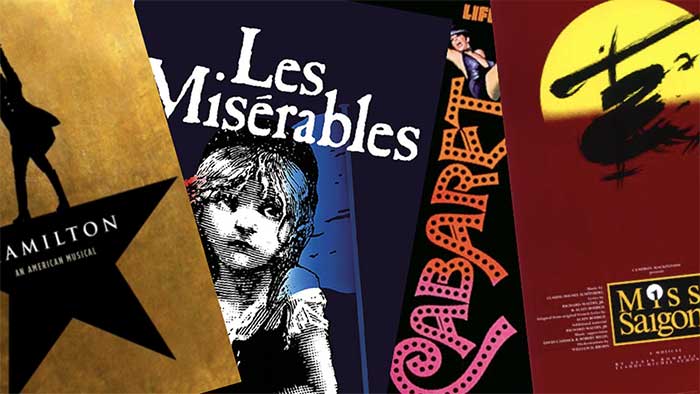
By John Anthony S. Estolloso
LIN-MANUEL MIRANDA’S Hamilton opened a few weeks ago at Solaire and consistent with the acclaim that greeted the musical during its 2015 premiere, it got rave reviews from young people who found new understandings in the story of an obscure and foreign character from history. Perhaps it was the witty lyrics and riveting rhythms or the frenetic rapping and street-dancing that got them all hooked up. But beyond the words, music, and choreography, how many of the audience arrive to the idea of Hamilton as biography transmuted for the musical stage? And like all biography – or history, for that matter – the narrative aspires to pass judgment, good or bad, on what transpired in the past as on how it influence the present: as always, who lives, who dies, who tells your story?
Some years ago, this writer chanced upon an audacious Facebook post by a certain netizen insisting that one ought not to attach political meanings to theatrical shows. Truly yours did a double take and had to re-watch Boublil and Schönberg’s Les Misérables and Andrew Lloyd Webber’s Evita to confirm if indeed one can separate the theatrical from the political.
If our appreciation of theater rests merely as family entertainment, then we missed the entire point of the dramatic art. At its core, theater is visual contemporary commentary in its most basic form. Cavemen probably got bored hunting mammoths or making sure they do not get eaten by the end of the day that they had all this spare time to memorialize the most basic acts of survival – and what better way to do that than to stand in front of a captive audience by the communal hearth and reenact the tales of hunt and harvest?
As all art forms would have it, the theater likewise attempts to reflect that zeitgeist, ancient or contemporary it may be. And if every human act of survival and transcendence regardless of time period is pertinent as political acts, does this not make the dramatic art political as well?
Look back to the Greek and Roman classics and one encounters this narrative of mirroring realities. The tragedies of Sophocles, Aeschylus, and Euripides and the comedies of Aristophanes, Plautus, and Terence were meant to be dramatic mirrors of their times – either to underline the lamentable outcomes of defeat in war or to lampoon and call out the corruption of public officials. The Greek plebs who wept and the Roman rabble who laughed saw through their thespians the pathos of their shared experiences or the dishonesty and debauchery of their patricians and senators.
Traverse to the English classics and one will find pretty much the same slant: Shakespeare and Milton – for all their archaic and quasi-religious phrasing loathed by some students who have to memorize and deliver their soliloquies and monologues with detached understanding – showed their contemporaries how playwrights can pander to the ruling classes. Seen through the lens of politics, Shakespeare’s histories and Milton’s verses were exquisite poetry, excellent propaganda, and simply icky and pathetic historical whitewashing (or mudslinging).
While the younger folk may have been mesmerized by Miranda’s award-reaping play, older generations of theatergoers were acquainted with politics in theater with blockbusters like Evita, Les Misérables, Miss Saigon, to name a few. Not wont to hide political meanings, these shows were biting ‘musical editorials’, if one dares to call them as such: with the context of the 60s to the 80s in mind, need we lecture about the possible denotations of a red flag waved by students over a barricade or about Vietnamese prostitutes in skimpy bikinis gyrating with American GIs?
On the lighter side, shows like South Pacific, Cabaret, The Producers, Wicked, The Book of Mormon, and courting fresh controversy, Here Lies Love, give us a more satirical take on politics and social issues but they nevertheless compel the audience to weigh the judgments of history and the powerplays between ideologies that inundate these. Symbolic or metaphorical, these theatrical iterations carry on the dramatic legacy of telling the truth by making fun of it: to burlesque is to philosophize, to laugh is to be veracious.
This tradition of reflecting the times onstage is the integral core of theatre. It is the creative act of taking a slice of reality and putting this onstage, of moving audiences to see truths or at least, realities that may have been forgotten or suppressed by powers that be. Granted, it is all fun and glamor until you go beneath and beyond the lines of the lyrics, look closely at the lighting design and the choreography, observe the choice of casting and costume: then that’s when the begowned figure dressed to the nines with an Argentinian sash or the helicopter hovering over panicking civilians make total sense.
While we cannot dispense with the idea that politics relies on populist theatricals to keep it up and running, to sanitize the idea of theater as apolitical is pure poppycock: the play’s the thing that drives home the point, regardless of which side of the political spectrum or what social advocacy the members of the audience champion.
So the next time someone scoffs at musical theater as just some family-friendly entertainment of song, spiel, and spectacle, remind them of the cute swastikas emblazoned on the banners behind the Von Trapp family as they sing Edelweiss. One needs not to climb every mountain to understand their meanings.
[The writer is the Subject Area Coordinator for Social Studies in one of the private schools in the city. The collaged images are from Google.]




















